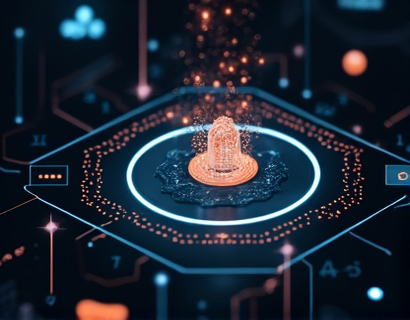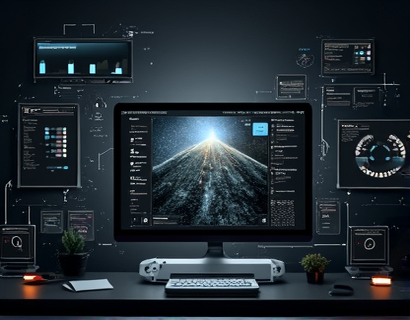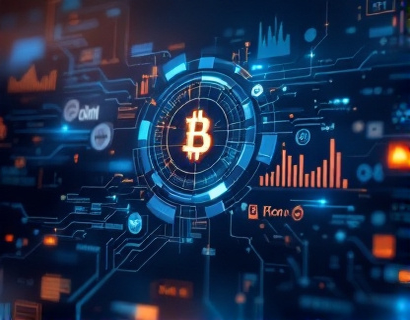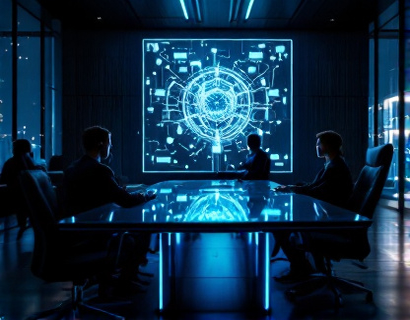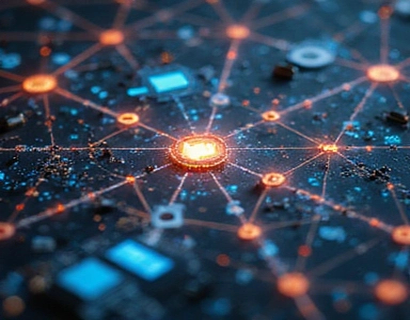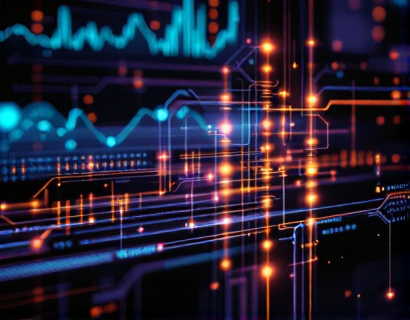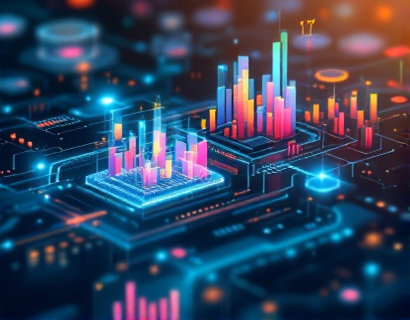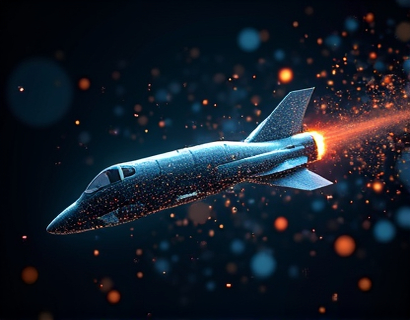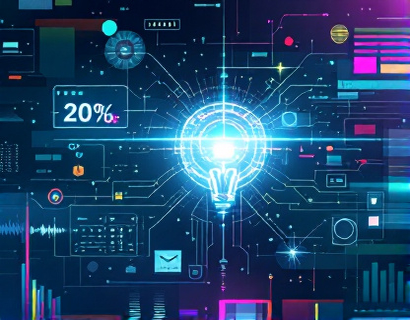Unleashing the Next Generation of Digital Innovation: The Synergy of Crypto and AI
The intersection of cryptocurrency and artificial intelligence (AI) is giving birth to a new era of digital innovation, one that promises to revolutionize the way we interact with technology and conduct business. This fusion of two of the most transformative technologies of our time is not just a trend but a fundamental shift in the digital landscape. For tech pioneers and early adopters, understanding this synergy is crucial to staying ahead in a rapidly evolving market. This article delves into the profound impact of merging crypto and AI, exploring how these technologies are reshaping industries and driving the next wave of technological advancements.
The Foundations of Cryptocurrency and AI
To fully appreciate the convergence of crypto and AI, it's essential to understand the basics of each technology. Cryptocurrency, at its core, is a digital or virtual currency that uses cryptography for security and operates on a decentralized network, typically a blockchain. This decentralized nature ensures transparency, security, and reduces the need for intermediaries such as banks. The most well-known cryptocurrency, Bitcoin, was launched in 2009, but the concept has since expanded to thousands of altcoins, each with unique features and use cases.
Artificial intelligence, on the other hand, refers to the simulation of human intelligence processes by machines, particularly computer systems. These processes include learning (the acquisition of information and rules for using it), reasoning (using rules to reach approximate or definite conclusions), and self-correction. AI technologies such as machine learning, natural language processing, and computer vision have seen exponential growth, thanks to advancements in computing power and data availability.
How AI Enhances Cryptocurrency
The integration of AI into cryptocurrency systems has led to significant improvements in various aspects of blockchain technology. One of the most impactful applications is in the realm of security. AI algorithms can detect and prevent fraudulent activities by analyzing patterns and anomalies in transaction data. This real-time monitoring helps in identifying potential security threats before they can cause harm, enhancing the overall safety of the cryptocurrency ecosystem.
Another area where AI shines is in optimizing blockchain performance. Blockchain networks, especially those that are decentralized, can face scalability issues due to the need for consensus among numerous nodes. AI can optimize these processes by predicting network behavior, adjusting parameters for better efficiency, and automating complex tasks. For instance, AI-driven algorithms can manage resource allocation and improve transaction processing speeds, making blockchain more viable for widespread use.
AI-Driven Cryptocurrency Trading
The trading of cryptocurrencies has become increasingly sophisticated with the advent of AI. Traders can leverage AI algorithms to analyze vast amounts of market data, identify trends, and make informed decisions. These algorithms can process information at speeds and scales impossible for humans, providing a competitive edge in the fast-paced crypto market. AI can also help in risk management by predicting market movements and suggesting optimal entry and exit points for trades.
Moreover, AI-powered trading bots can operate 24/7 without emotional bias, executing trades based on predefined strategies. This automation not only increases efficiency but also reduces the potential for human error. For early adopters, integrating AI into their trading strategies can lead to more consistent and profitable outcomes in the crypto market.
Decentralized Finance (DeFi) and AI
Decentralized Finance (DeFi) is a revolutionary financial system built on blockchain technology, aiming to provide financial services without traditional intermediaries. AI plays a crucial role in enhancing DeFi platforms by improving lending, borrowing, and yield optimization. AI algorithms can assess creditworthiness more accurately, reducing the risk of default and enabling more accessible financial services. Additionally, AI can optimize portfolio management in DeFi, suggesting the best combinations of assets to maximize returns while minimizing risk.
The combination of AI and DeFi also opens up new possibilities for automated financial advisory services. These AI-driven advisors can provide personalized investment recommendations based on an individual's financial goals and risk tolerance. This democratization of financial advice makes high-quality investment strategies accessible to a broader audience, further empowering users in the crypto ecosystem.
Smart Contracts and AI
Smart contracts are self-executing contracts with the terms of the agreement directly written into code. They run on blockchain networks and automatically enforce and execute the terms of the contract when predefined conditions are met. AI can enhance smart contracts by adding layers of intelligence and adaptability. For example, AI can analyze real-time data to dynamically adjust the parameters of a smart contract, ensuring it remains optimal and responsive to changing conditions.
This synergy between smart contracts and AI can revolutionize various industries, from supply chain management to legal agreements. In supply chain, AI-enhanced smart contracts can automate payments and verify the authenticity of goods, reducing fraud and increasing efficiency. In legal contexts, AI can help draft and execute smart contracts that adapt to new information or changes in law, ensuring compliance and reducing the need for manual intervention.
Challenges and Considerations
While the integration of AI and cryptocurrency offers numerous benefits, it also presents challenges that must be addressed. One of the primary concerns is regulatory compliance. The crypto space is still largely unregulated, and the use of AI adds another layer of complexity. Ensuring that AI-driven crypto solutions comply with existing regulations and future laws is crucial to avoid legal issues and maintain trust in the ecosystem.
Another challenge is the technical complexity involved in developing and maintaining AI systems. Building robust AI algorithms requires significant expertise and resources. For organizations entering this space, investing in skilled personnel and advanced infrastructure is essential. Additionally, the ethical implications of AI, such as bias and transparency, must be carefully considered to ensure fair and equitable use of these technologies.
Future Prospects
The future of the crypto and AI convergence is bright, with numerous potential applications yet to be explored. One exciting area is the development of AI-powered decentralized autonomous organizations (DAOs). DAOs are community-driven entities governed by smart contracts, and AI can enhance their decision-making processes, resource allocation, and strategic planning. This could lead to more efficient and democratic organizational structures.
Another promising direction is the integration of AI with Internet of Things (IoT) devices in the crypto space. AI can process and analyze data from numerous IoT devices, enabling smarter and more automated interactions. For example, AI-driven IoT devices can manage energy consumption in smart homes, with transactions and payments facilitated through cryptocurrency, creating a seamless and efficient ecosystem.
Furthermore, the combination of AI and cryptocurrency can drive innovation in areas such as digital identity, healthcare, and education. AI can enhance the security and privacy of digital identities on the blockchain, while AI-driven analytics can improve healthcare outcomes and personalized learning experiences. These applications not only enhance user experiences but also open up new markets and opportunities for tech pioneers.
Conclusion
The merging of cryptocurrency and AI represents a paradigm shift in the digital world, offering unprecedented opportunities for innovation and growth. For tech pioneers and early adopters, embracing this synergy is essential to stay competitive and drive meaningful change. By understanding the foundational technologies, exploring their applications, and addressing the associated challenges, individuals and organizations can position themselves at the forefront of this exciting new frontier. The future is here, and it is powered by the combined forces of crypto and AI.







